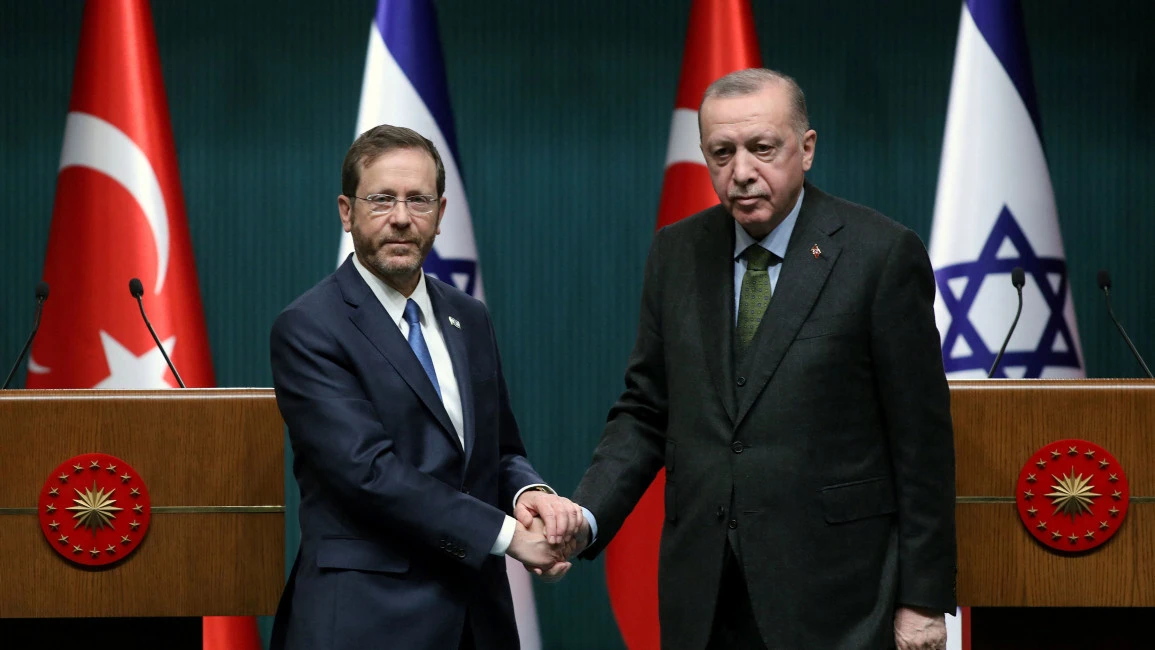Turkish President Recep Tayyip Erdogan has leveraged the United Nations General Assembly to critique Israel and its Prime Minister, Benjamin Netanyahu. Despite his efforts to position Turkiye as a leading voice against Israel, the nation finds itself increasingly marginalized in the regional landscape.
At the UN, Erdogan reiterated his controversial comparison of Israel to Hitler, advocating for an “international alliance of humanity” to confront Israel as the world did with Hitler decades ago. However, experts suggest that such extreme rhetoric is resonating with an ever-decreasing audience. Sezin Oney from Politikyol noted that Erdogan’s statements primarily serve to rally his domestic supporters rather than attract international backing, indicating a waning perception of Turkiye’s role in championing Palestinian rights.
In an attempt to reinforce his image as a significant regional player, Erdogan held meetings with the Prime Ministers of Lebanon and Iraq during the UN General Assembly. Yet, Turkiye’s diplomatic stature is in decline, largely due to its perceived pro-Hamas stance, which has isolated it in international discussions. Selin Nasi from the London School of Economics emphasized that this approach has shifted the focus to Egypt and Qatar, who are recognized for their mediation efforts while Turkiye remains excluded.
Since the outbreak of conflict following Hamas’s attack on Israel on October 7, Turkiye has sought to assert itself in international mediating efforts, owing to its connections with Hamas. Soli Ozel from the Institute for Human Studies highlighted that the U.S. even approached Turkiye to engage with Hamas. However, the assassination of Hamas leader Ismail Haniyeh in Iran significantly undermined Turkiye’s diplomatic leverage, as it lost its primary contact within the organization.
With Israel feeling alienated by Erdogan’s inflammatory comments and the trade embargo imposed by Turkiye, analysts like Gallia Lindenstrauss have pointed out that Turkiye lacks the necessary influence to mediate effectively. The predominant mediators—Egypt and Qatar—hold leverage over Hamas that Turkiye cannot match, rendering its efforts ineffective.
Despite Turkiye’s criticisms of existing mediation processes, experts argue that Arab nations are wary of Turkiye’s involvement. Huseyin Bagci from Middle East Technical University stated that while Turkiye is seen as an adversary of Israel, the ongoing Arab-Israeli conflict fundamentally remains an Arab-Israeli issue, not a Turkish-Israeli one.
For over a decade, Erdogan has aimed to enhance Turkiye’s influence in the Middle East, often romanticizing the Ottoman era as a time of stability and peace. However, analysts like Ozel contend that the current conflict has dashed these aspirations, illustrating that Turkiye’s ambitions for dominance in the region have faltered.
As the Israel-Hamas conflict threatens to escalate further, Erdogan’s critical stance towards Israel is expected to persist. However, analysts warn that beyond his conservative domestic base, the broader regional response may be limited, reflecting Turkiye’s diminishing diplomatic clout.



